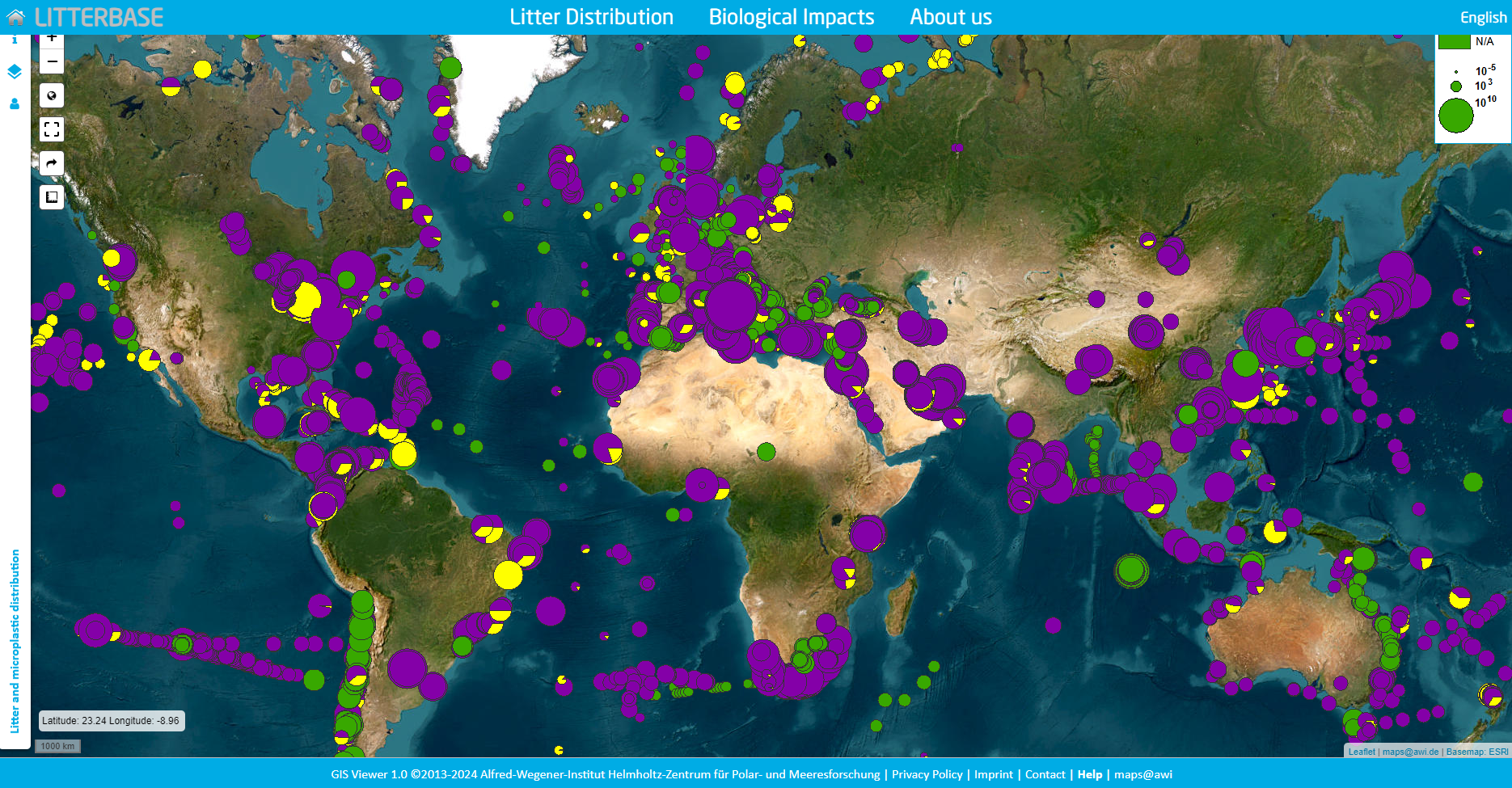LITTERBASE: Online Portal for Marine Litter

The litterbase website provides maps and data on litter and macroplastics distirbution such as this one.
Over the last decade, the progress in marine litter research has increased exponentially making it difficult to keep track. As a response, the Alfred Wegener Institute devised the online portal LITTERBASE, which provides regularly updated information on the global distribution and composition of aquatic litter pollution and its impacts on biota.
Large amounts of litter have accumulated across all parts of our oceans in less than half a century. Litter has thus become a serious threat to the marine environment, aquatic life and humankind, whose welfare is closely linked with ocean health.
Research on marine litter is currently taking a great leap forward and has substantially increased our knowledge of the amount and composition of litter as well as its impacts on the marine environment, aquatic life and people.
However, the sheer number of studies scattered all around the globe has rendered this topic increasingly intangible making it difficult for policy makers, public authorities, media and the general public, but also professional scientists, to unearth important information needed to address the urgent questions.
LITTERBASE summarises results from 2,870 (as by November 2021) scientific studies in understandable global maps and figures and opens scientific knowledge on marine litter to a great panel of stakeholders.
LITTERBASE currently comprises 1,338 scientific publications on the amount, distribution and composition of litter in the ocean and other watercourses. This information is continuously updated and visualised in global distribution maps.
However, litter has been quantified in many different units by different workers, which hampers direct comparison. Therefore, users can select subsets of data with the same unit for direct comparison in addition to global maps with all litter quantities. Furthermore, the information on display can be filtered according to size category of the litter (macro: > 5 mm, micro: ≤ 5 mm, nano: ≤ 100 nm) and habitat considered (beach, sea surface, water column, seabed).
LITTERBASE currently comprises 1,808 scientific publications on interactions of organisms with litter. Interaction refers to encounters between wildlife and litter items. Ingestion was the most frequently observed interaction, followed by entanglement, which affects motility, often with fatal consequences.
In addition, many species can settle on floating litter. If floating litter is carried over long distances by ocean currents, associated rafters can invade new areas. While the database also contains records of interactions with wildlife from watercourses and land, the main focus of LITTERBASE is on the marine realm.
The records can be filtered according to interaction type, aquatic system (marine, freshwater, estuarine) and marine realm (beach, sea surface, water column, seafloor), as well as being shown separately. The option to dynamically select on specific periods of time allows for a visualization of the global research and publication activity on marine litter.
The research team behind Litterbase: Mine B. Tekman, Dr. Lars Gutow, Dr. Melanie Bergmann and Corina Peter Alfred Wegener Institute Helmholtz Centre for Polar and Marine Research
- Watch a video explaining how the German Alfred Wegener Institute documents ocean pollution using online maps here.
- Visit the LITTERBASE website.